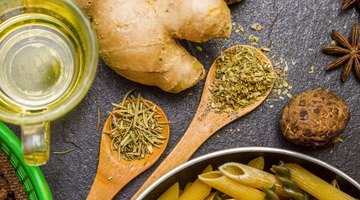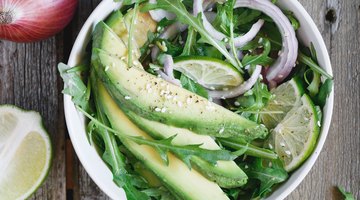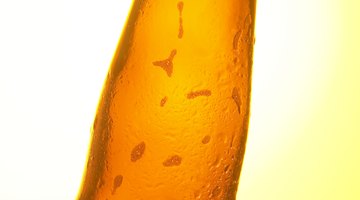Relief From Bloating Due to MSG Consumption
Monosodium glutamate (MSG) is a sodium derivative of glutamic acid. It is added to many processed food products for its flavor enhancing and preservative properties.
Like table salt, MSG can cause water retention and bloating. With a few simple dietary modifications, you can reduce or eliminate bloating due to MSG consumption.
Sources
MSG can be found in a variety of foods ranging from Chinese food to potato chips and condiments.
It is most often present in processed foods and pre-packaged meals like TV dinners. MSG goes by many other names, including hydrolyzed yeast, soy extract, yeast extract and hydrolyzed vegetable protein.
Because it contains sodium, MSG contributes to your daily sodium intake. Other sources of sodium include table salt, seafood, milk and meat.
Causes

Foods to Avoid in Pregnancy With Indigestion
Learn More
Bloating can result from gas, water retention and many other causes.
Like other kinds of sodium, MSG is most likely to cause bloating by triggering water retention. When sodium levels are excessive in the body, the kidneys excrete the extra sodium in urine. If the kidneys become unable to excrete enough sodium, it accumulates in the blood, holding water and leading to water retention or edema.
MSG may also cause specific digestive symptoms in those who are sensitive to the substance. The University of Michigan Health System states that people with MSG sensitivity may experience gastrointestinal problems like diarrhea and nausea after ingesting foods that contain it.
Effects
MSG and other types of sodium affect people in different ways. According to Mayo Clinic, some people are more sensitive to sodium, making them more likely to suffer from fluid retention and related symptoms.
Eating foods that contain MSG and other forms of sodium may lead to bloating and water retention, especially in sensitive individuals. In addition to bloating, water retention is associated with increased risk for high blood pressure, stroke, kidney disease and other serious conditions.
Prevention/Solution

Cinnamon and Liver Damage
Learn More
The best way to prevent MSG-induced bloating is to limit your daily intake of sodium sources, including MSG. According to Mayo Clinic, healthy adults should not exceed 2,300 mg. of sodium per day.
Cutting back on processed foods and high-sodium foods like meat and shellfish is an effective way to lower your sodium consumption. Fresh fruits and vegetables, whole grains, poultry and nuts are naturally low in sodium.
Before buying processed foods, check the nutritional information section for sodium content.
Learn to recognize hidden sources of MSG on food labels and avoid products that contain over 200 mg. of sodium per serving. Bodybuilding.com suggests drinking more water, adding fiber to the diet and exercising vigorously to help reduce bloating caused by water retention.
Considerations
Despite subjective reports of MSG sensitivity, there is no conclusive evidence it is a legitimate medical condition, according to Mayo Clinic. If you experience severe or prolonged bloating, talk to a doctor about your treatment options.











